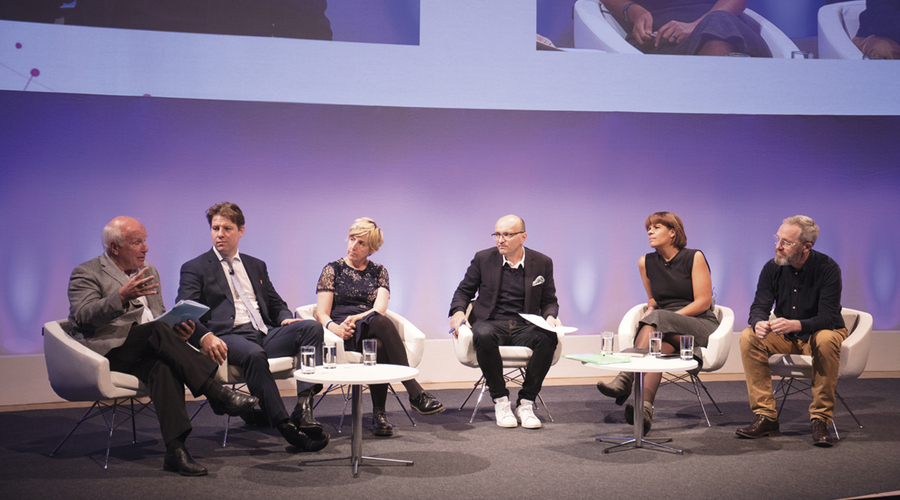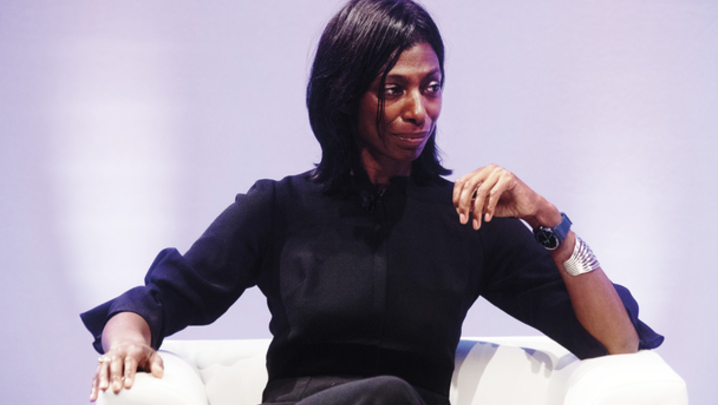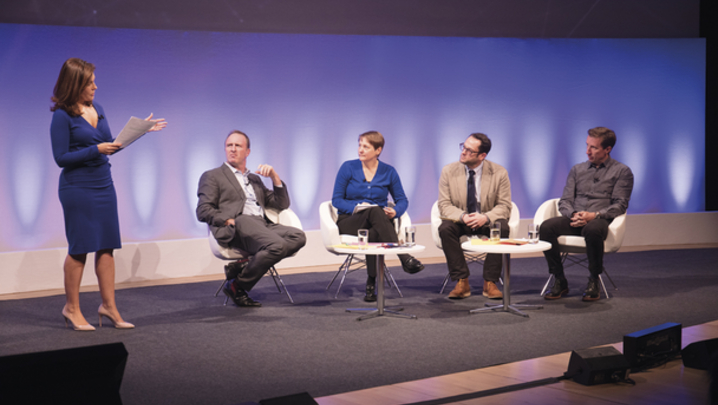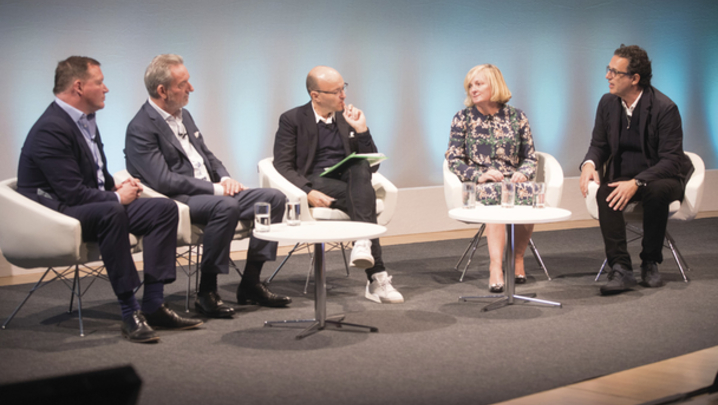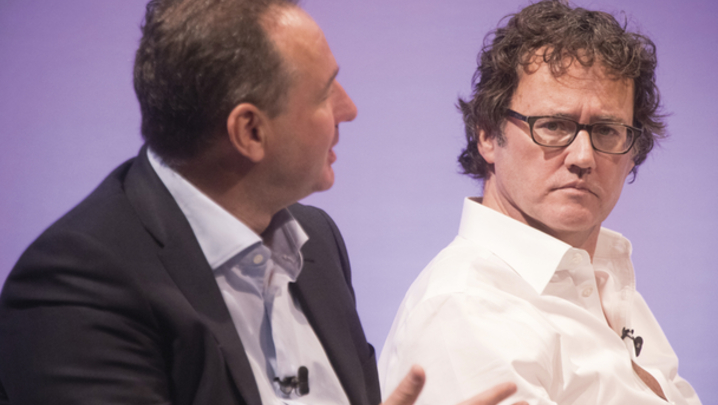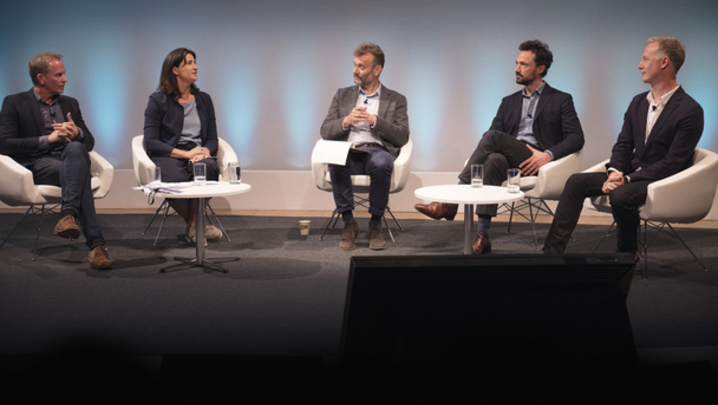Social mobility and TV’s Oxbridge bias is the latest battleground in the diversity debate, discovers Tara Conlan
Social mobility was centre stage in this session, which, appropriately, was attended by some of the RTS’s bursary students, who are drawn from low-income families.
Session chair and Expectation co-CEO Tim Hincks asked why class and socio-economic background seemed to be “the slight afterthought” when it came to diversity. To get a rough idea about the people who had progressed to the top of the TV tree, Hincks took a poll of the audience and panel to find out who had been privately educated.
Around 30% of convention delegates put their hands up. This was over four times the UK national average: 7% of British school children attend non-state schools.
When Hincks asked how many were Oxbridge graduates, around 20% raised their hands, compared with the national average of under 1%. “Does that matter, that we are over-represented in this industry from those sorts of places?” was Hincks’s opening gambit.
He asked panellist Greg Dyke, the former BBC Director-General who famously once described the BBC as “hideously white”, if it would have been “more radical” to ask if the corporation was “hideously middle-class”.
“What was obvious to me was that our society was changing rapidly in terms of ethnic minorities and the BBC wasn’t,” said Dyke, who went to the University of York. “I remember talking to a former chairman of the BBC and he said: ‘Of course, we’ve always employed the brightest and the best.’ When you tried to define what he meant, he meant white, male, public school, Oxbridge.
“Would we have done better to talk about class? It would have been much harder.”
“Why is that?” asked Hincks.
“Because there were no statistics,” responded Dyke. “The great thing about ‘hideously white’ was that the BBC took me seriously.”
Sky’s head of drama, Anne Mensah, said that, at Sky, there was a “commercial imperative” to reflect the whole country. If the industry wanted to engage with the audience it had to bear in mind that the vast majority of the population did not go to private school.
“On a basic level, diversity means diversity of stories. I want the posh and also the non-posh, and everything in between,” she said.
Mensah, who attended a comprehensive school in Catford, south London, said she was lucky. Her parents were very supportive and she got her first break at Carlton TV.
She added: “You have to make sure that how you define good isn’t codified by traditional experience. So, good is not just going to Oxford or Cambridge, although it includes that… it is not just knowing how to read Beowulf, it might include knowing manga comics.”
Hincks asked the BBC’s James Purnell if his private school and Oxbridge education had put him at an advantage.
“I definitely had some privileges,’” he accepted. “I went to a state school in France and then private school here. Oxbridge was definitely an advantage, you just know lots of people.
“I was brought up by a single mum…she was amazing but also kept everything safe. She was incredibly brave and robust. The biggest thing was social capital; when I decided I wasn’t going to go to university [she was] sitting me down and persuading me that this was a mistake.”
Hincks suggested that it was quite difficult to put people in boxes.
“Big groups are hard,” agreed Purnell. “There’s no silver bullet. For me, it’s about individuals, really. The data is inevitably going to be big groups – and that’s important and it makes us accountable and tells us where we need to do more. But the practice is about individuals and hard work.”
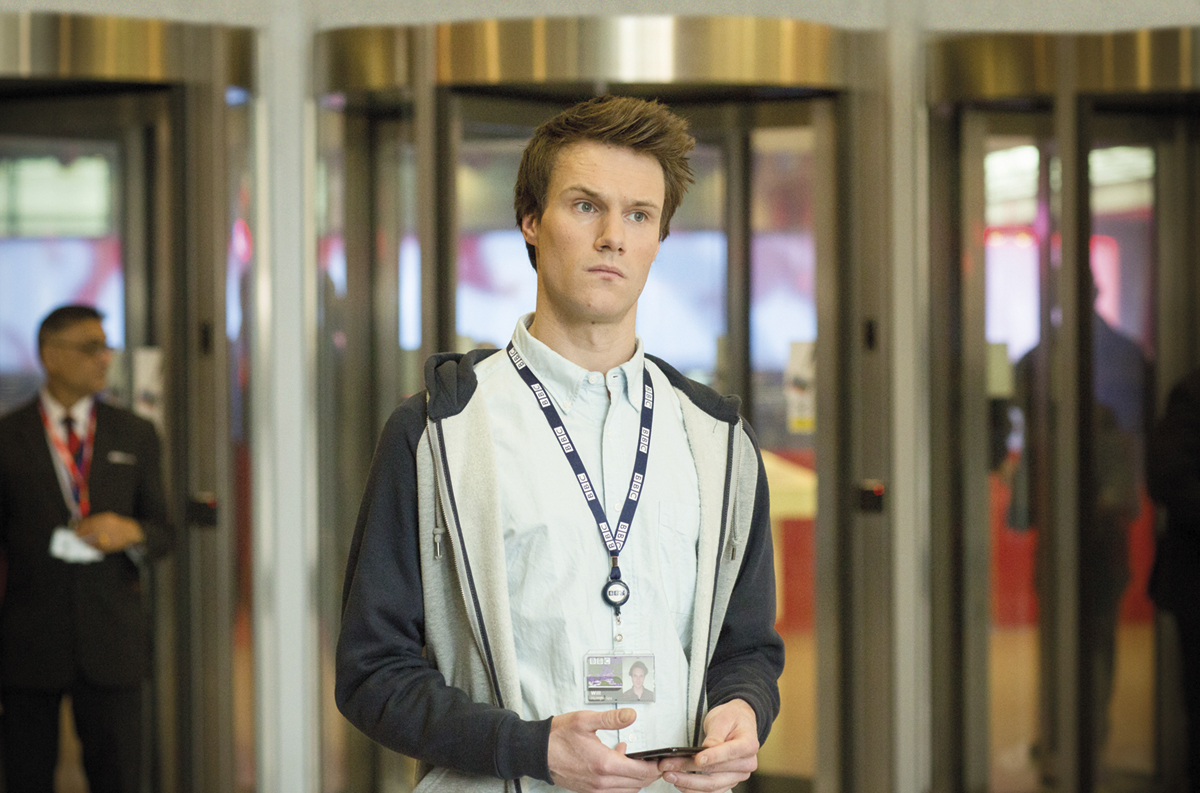
The next panellist to speak was the actor Julie Hesmondhalgh, who said: “I am the product of the state and therefore a great supporter of the state.
“I was given a full grant and a maintenance grant to go to London to study at a top drama school.
“After I graduated from Lamda, I was able to sign on and get benefits. I did that for two to three years, during which time I built up a theatre company in London. But, now, that’s absolutely been stripped away.” She concluded that it was now almost impossible for someone from her background to afford to go to drama school.
Hincks introduced the controversial subject of internships and how much they favour the middle class.
The session’s final panellist, Spectator editor Fraser Nelson (educated at a comprehensive and Glasgow University), said internships were important but the real question was how they were distributed: “If we’re giving internships to the sons and daughters of the well-connected… we’re perpetuating our own likeness.
“Everybody is here in this room as a stroke of good luck in some way or another – it might be good luck of birth, school, a teacher.… It’s not a perfect meritocracy and the system is only as good or bad as we choose to make it.”
The Spectator has a no-CV policy. “We just test on aptitude” by setting seven tests. These include writing a blog and cutting a podcast so, “already, these are pretty determined people”.
He said that he was surprised at the number of Oxbridge interns, which “shows the system is not corrupt”, and revealed that one candidate was “a 48-year-old mother of three who was applying for the first time”.
Ofcom CEO Sharon White had said in a previous session that she did not want people to do unpaid work for organisations. Nelson, however, argued that having paid internships added a cost to the bottom line and thus reduced the number being offered.
Purnell explained that the BBC had banned unpaid internships and had various schemes running to broaden the social range of the people it employed. These included apprenticeships and a two-week, unpaid taster aimed at people from underprivileged backgrounds.
Sky, said Mensah, had created opportunities via the Sky Academy. These allowed a range of people to see what the broadcaster does and gave local students the chance to work in different departments for a year – paid. “We give people mentorship.… I worry that we bring a lot of people in at the bottom level and then just drop them. It’s not just how you get in, but how you get through the middle ranks and to the top.”
Dyke – the only BBC Director-General not to have gone to Oxbridge or private school – was later appointed Chairman of the BFI. There, “we had the classic ethnic minority policy come through and we threw it out.…They are full of good intentions and nothing changes.”
He explained that the BFI then, as a distributor of lottery money, told producers that, “if you don’t meet these criteria in terms of ethnic minorities, you don’t get any money. The BBC could do that and Sky could do that. Once you do that, you will change the independent sector.”
Hincks asked what could be done for people such as RTS bursary student Suzanne Pearson, who spoke from the floor. She said she did not feel like she quite fitted into the diversity boxes. Should there be a section on forms for not having parental support?
Hesmondhalgh said it was important to define social mobility and think about cases such as carers; moreover, some people might not have much money but great parental support.
She said: “For me, it has to come back to the state.… We have taken opportunities away and they have to be reimplemented.”
The BBC had collected data on social mobility, explained Purnell, including whether employees’ parents had gone to state school, and identifying the parents’ professional backgrounds.
The corporation found that 17% of its staff attended private school, rising to 24% in management; 60% of all employees had parents who were managers or had a professional occupation of some kind.
“We are now doing anonymised recruitment, where you take off name and degree,” added Purnell. “The key thing is to keep on publishing data.”
The BBC was also “thinking about” introducing socio-economic targets.
Dyke interjected: “Data is great but it’s not enough, is it? During his time as DG, heads of department were called in to “kangaroo courts” every three months if they were not meeting targets. “If the DG cares about it, they will [too]… if they think it’s [just] the HR department, not a chance.”
Mensah said that if you came from a different background, you didn’t know the rules, what to ask in interviews or what to wear. In drama, people tended to look for candidates who name checked the right authors. “It’s not testing how you edit or write, but if you visit the Royal Court Theatre,” she said.
Sky runs a day for trainees, telling them the kind of things they need to know in order to get into drama.
“As an industry, we’ve slightly shifted… we used to celebrate our best soaps,” said Mensah, who argued that soaps showed the diversity of the UK and had traditionally been great training grounds for talent.
“We are very nervous” about telling stories in drama about people from very deprived backgrounds unless they are factual-based, said Hesmondhalgh, a former Coronation Street star. “There’s a feeling that we’re not entitled to tell stories about the working class unless they are respectable; they have to be noble in some way. Happy Valley is a good example of that… they are flawed but they are respectable.”
Purnell praised BBC children’s department for being ahead of the curve and making diverse shows. He referenced Apple Tree House, set on a council estate, and care home drama The Dumping Ground: “They have been on to this for some time and have been determined to reflect the whole of society.”
‘Session Twelve: A world of opportunity – for all?’ featured: Greg Dyke, broadcaster and former BBC Director-General; Julie Hesmondhalgh, actor; Anne Mensah, head of drama, Sky; Fraser Nelson, editor, the Spectator; and James Purnell, director of radio and education, BBC. The session was chaired by Tim Hincks, Co-CEO, Expectation Entertainment, and produced by Alan Clements.
How the system excludes talent
Suzanne Pearson, an RTS bursary student, lives in Rotherham. She studied film and television production but is finding it hard to break into television.
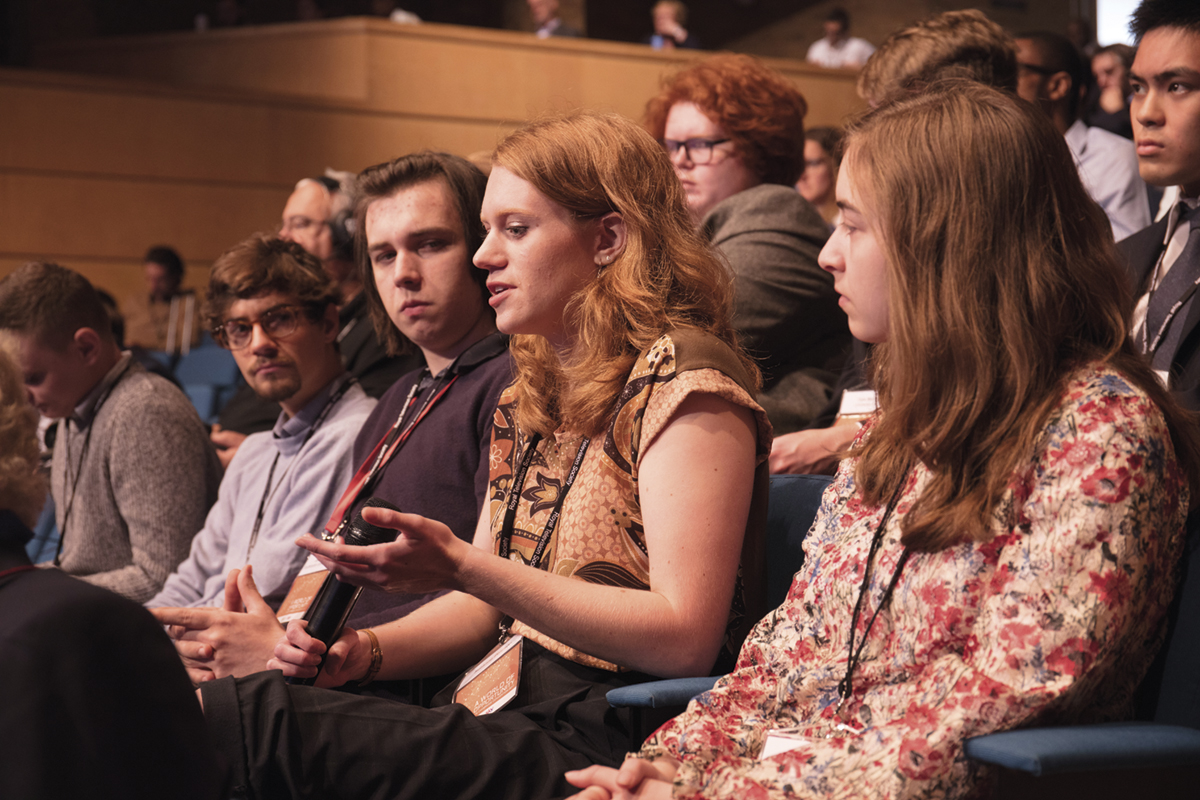
(Credit: Paul Hampartsoumian)
Pearson told the audience: ‘There is a miscommunication about diversity, because I feel that, on a lot of the job applications, it tends to be about your ethnicity, your sex, your sexuality and, occasionally, asks if you had free school meals – but nothing about where you live or your background.
‘There was [just] one application [question] about whether you were a carer or had ever been in care.
‘The other interesting thing is paid internships. I think these should be the norm because, even if there are loads of internships going that are free, it puts those who can afford it two weeks [ahead].… It puts everyone else at a disadvantage.
‘If every internship was paid, then everyone would be on the same playing field and be able to live off that.’ Fellow students of Pearson had been unable to attend difficult-to-reach TV sets daily because they couldn’t afford a taxi or stay in a hotel near by. ‘I don’t think it should be like that, as it puts everyone else back,’ she said.

